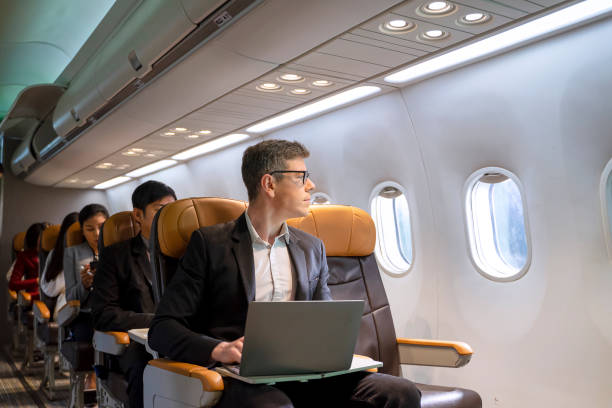Sustainability is becoming a cornerstone of inflight products and services as airlines adapt to the growing demand for eco-conscious practices. This shift encompasses everything from sourcing local ingredients for meals to integrating sustainable materials in cabin amenities. Airlines are also exploring innovative waste reduction strategies, greatly impacting their environmental footprint. As these changes unfold, the implications for customer loyalty and competitive differentiation in the aviation industry warrant further examination.
The Shift Towards Eco-Friendly Inflight Meals
As airlines increasingly recognize their environmental responsibilities, the shift towards eco-friendly inflight meals has become a pivotal focus in sustainable aviation practices. Implementing sustainable solutions in inflight dining not only reduces waste but also enhances customer satisfaction. Airlines are now offering bespoke inflight products that feature locally sourced ingredients, minimizing carbon footprints.
By integrating eco-friendly packaging and reducing single-use plastics, they align their meal services with broader sustainability goals. This commitment extends beyond meals to include airline amenity kits, reflecting a holistic approach to environmental stewardship. Ultimately, these initiatives position airlines as leaders in sustainable travel practices.
Sustainable Cabin Amenities and Supplies
Sustainable cabin amenities and supplies represent a crucial element in the broader framework of eco-conscious airline operations. By integrating sustainable solutions, airlines can offer bespoke inflight products that not only reduce environmental impact but also enhance passenger experience. Collaborations with airline amenity kit suppliers focusing on eco-friendly materials and processes guarantee that comfort does not come at the planet’s expense.
These initiatives reflect a growing consumer demand for responsible travel options, allowing airlines to differentiate themselves in a competitive market. Ultimately, the commitment to sustainability in cabin amenities fosters loyalty while promoting a greener future for the aviation industry.
Innovations in Waste Reduction and Recycling
While the aviation industry grapples with its environmental footprint, innovations in waste reduction and recycling have emerged as pivotal strategies for enhancing sustainability. Airlines are increasingly adopting bespoke inflight products designed with eco-friendly materials, minimizing single-use plastics. Sustainable solutions, such as compostable packaging and reusable service items, are being integrated into inflight offerings, greatly reducing waste.
Advanced recycling programs onboard further support these efforts, enabling the separation and repurposing of materials like aluminum and paper. By prioritizing waste reduction initiatives, the aviation sector not only addresses environmental concerns but also aligns with consumer demand for greener travel experiences, fostering a more sustainable future.
The Impact of Carbon Offsetting Programs on Passenger Choices
Carbon offsetting programs have emerged as a significant factor influencing passenger choices in the aviation sector, particularly as travelers become increasingly aware of their environmental impact. These programs offer a tangible way for passengers to mitigate carbon emissions associated with their flights, thereby appealing to eco-conscious consumers.
Airlines that incorporate carbon offsetting into their inflight products often showcase their commitment to sustainable solutions, enhancing brand loyalty. As awareness grows, passengers are likely to prioritize airlines that actively participate in these initiatives, shaping their choices and potentially driving the industry toward greater sustainability and responsibility in air travel.
Conclusion
To summarize, sustainability has become a pivotal factor in inflight products and services, shaping the airline industry’s response to environmental concerns. By prioritizing eco-friendly meals, sustainable cabin amenities, and innovative waste reduction strategies, airlines not only enhance the passenger experience but also establish a competitive edge.
Additionally, carbon offsetting programs influence consumer choices, reinforcing the importance of sustainable practices. Ultimately, a commitment to sustainability not only fosters customer loyalty but also contributes greatly to the aviation industry’s environmental responsibility.

